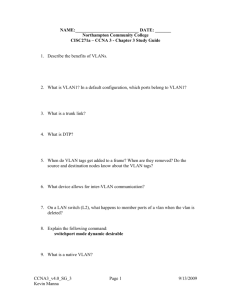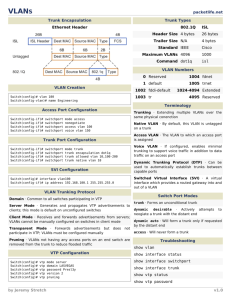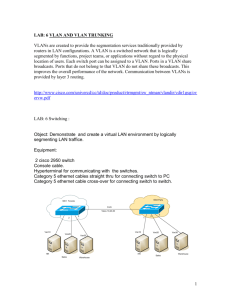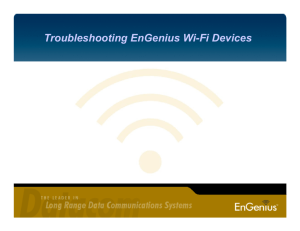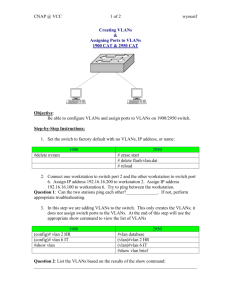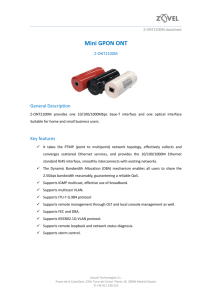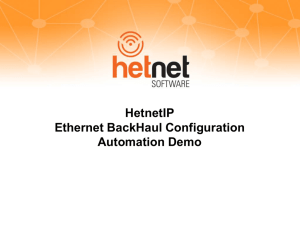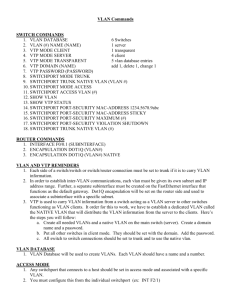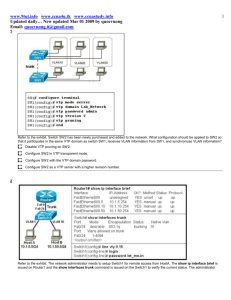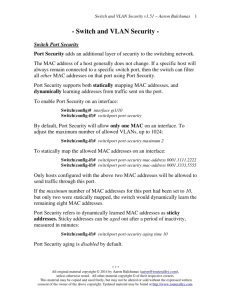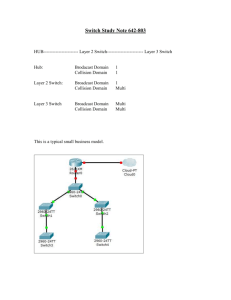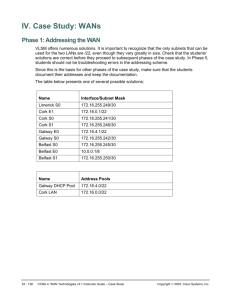Introducing VLANs
advertisement
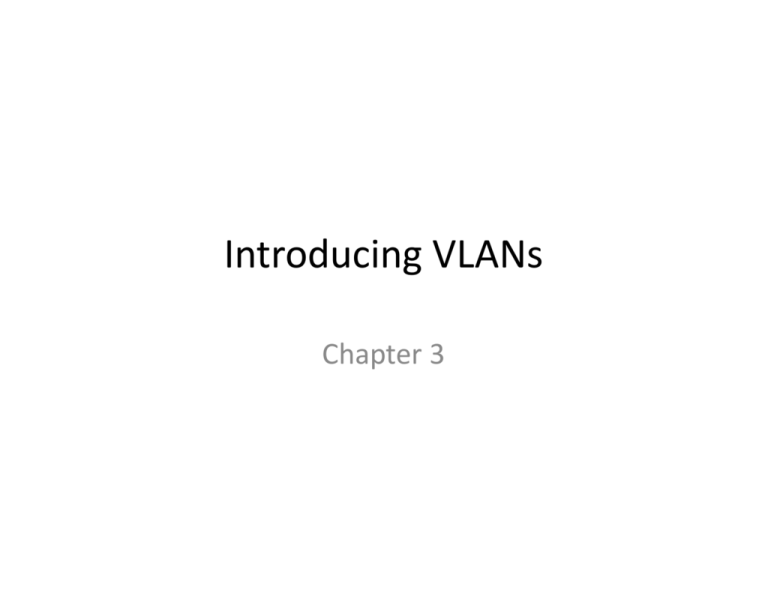
Introducing VLANs Chapter 3 VLAN • Virtual Local Area Network • a network of computers that appear to be connected to the same network • Intra VLAN – Communication within a VLAN • Inter VLAN – Communication between VLANs – Requires a layer 3 device (Router or Layer 3 switch) • Static vlan – Access port • Dynamic vlan – VMPS • Vlan Management Policy server, Eg. FreeNac • Assigns vlan based on the who the hosts are Configuration • Create vlan Switch(config)#vlan 7 Switch(config-vlan)#name Guest (Optional) Or Switch#vlan database Switch (vlan)#vlan 7 name Guest • Assign switchports Switch(config)#interface Fastethernet0/1 Switch(config-if)# switchport mode access Switch(config-if)# switchport access vlan 7 Trunk • A link that carries more than one VLAN • Alternative: One physical link pr. Vlan between switches. • Management vlan – Administrative access to the switch Switch(config)#interface vlan 10 Switch(config-if)#ip address 192.168.4.10 255.255.255.0 802.1Q • IEEE standard • Inserts a 4 Byte vlan tag in the frame header • Native vlan – Untagged traffic – Default: vlan 1 – Used by CDP, DTP and others DTP • Dynamic Trunking Protocol • Cisco proprietary • Automatically configures the link as a trunk: – Dynamic auto – Dynamic desirable – On Configuration Switch(config)#interface Fastethernet0/1 Switch(config-if)# switchport mode trunk Switch(config-if)# switchport trunk native vlan 40 Switch(config-if)# switchport trunk allowed vlan 7,40 • You can remove a vlan with active ports • You can assign an interface to non-existent vlans (some IOS’s) • Vlan.dat is not cleared when you erase startup configuration • The native VLAN must be the same on both sides of the link
